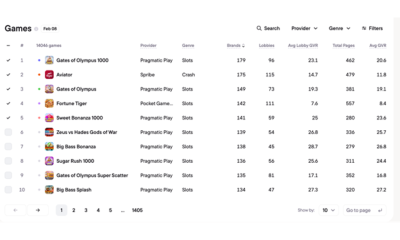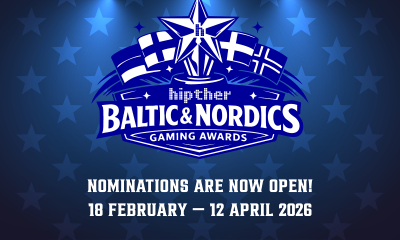Interviews
The Betegy story: “With a click of a button, we enable marketing teams to create entire campaigns in just a few seconds”
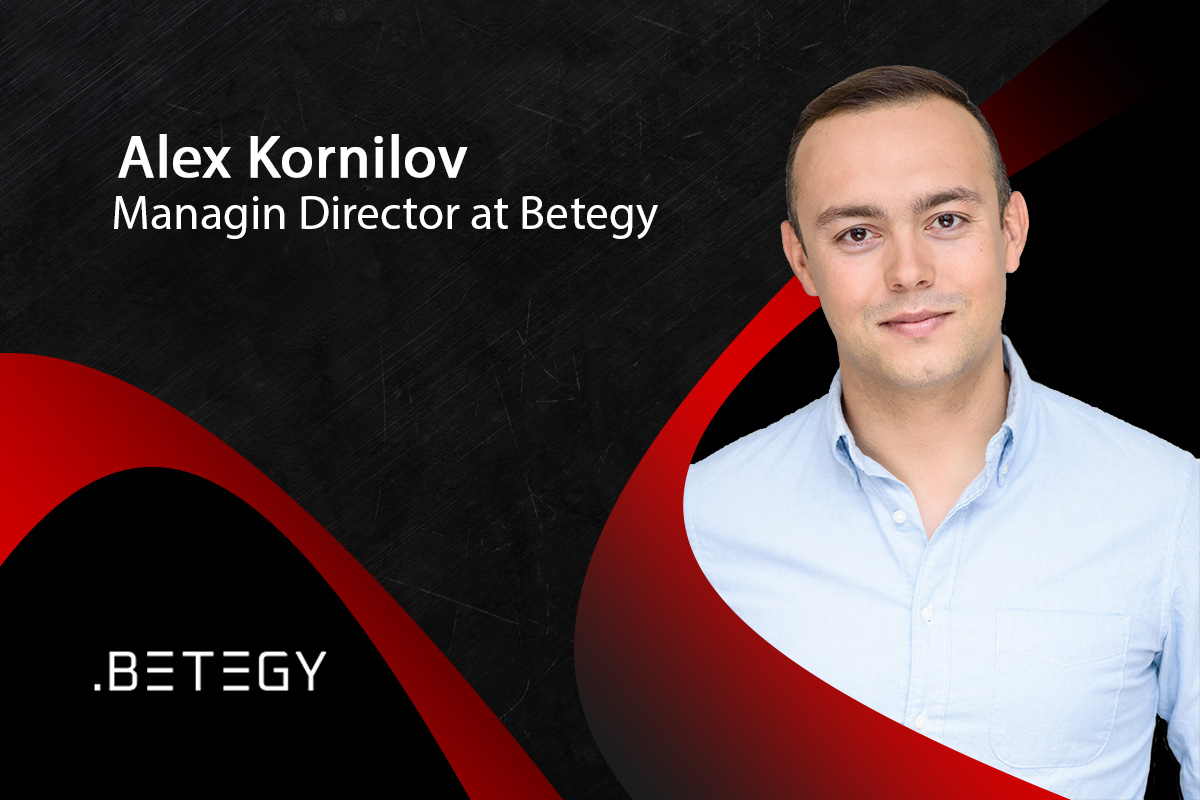
When it comes to the future of B2C marketing for sports betting and casino – personalisation and automation is going to be the name of the game. We caught up with Alex Kornilov, Founder and Managing Director of content and data specialists Betegy, to talk about his pioneering work in transforming the marketing operations for the likes of Parimatch, Sportsbet.io, ESPN and Yahoo Sports.
Congratulations on Betegy’s deal with Parimatch – can you take us through the agreement and what you’ll be doing for their teams?
It’s a relationship that has been in progress for some time, starting with us initially having a conversation about what we wanted to achieve. Parimatch was looking to optimise its offering to deliver a truly revolutionary style of marketing and this was something we were determined to deliver. Rather than being off-the-shelf, our discussions began with the premise of discovering the challenges Parimatch was facing and offering a bespoke solution.
Our Betegy product overcomes those pain points to engage their customers. Following the exploratory phase, we built a roadmap and a vision. It is vital that nothing is omitted at any stage, because all building blocks are essential in allowing us to create a unique product, vision and brand of the future –one that can truly resonate with players’ values.
With a click of a button, Parimatch’s marketing teams can now create compelling, personalised campaigns using Betegy’s proprietary automated content generation platform in a matter of seconds, rather than the old timeframe of two to three days.
Tell us about Betegy’s in-house technology – what was the development process behind it and how did you start out in 2012?
Back then, Betegy was working within data analytics and we had number-crunching algorithms that produced accurate predictions of football matches. We were coming up with predictions for media companies who wanted access to our feed, and this is how we ended up working with the likes of ESPN and Yahoo.
We subsequently realised that data and APIs were one thing, but that there was also a strong need for visualisation. From that starting point, we understood that we needed to create a variety of marketing tools out of that – including social, banners, landing pages and videos, for example – all driven by the APIs connected to our system. When we added odds to this mix, we realised that what we had produced could be very useful for betting operators.
Before we went live with sports betting in 2018, we had been working under the radar to help develop and hone our delivery with operator partners. This learning experience was invaluable as it allowed us to build the product in real time and only after two years of careful preparation, were we really ready to deploy with operators as a true product.
As well as the ‘revolutionary’ aspects mentioned for Parimatch, what other operators does Betegy work alongside? Does your delivery go beyond sports betting operators?
Every new client in our family benefits from our product and our growth strategy is based around continuous improvement. We work with various operators and each has their own unique pathway, allowing us to create a fully bespoke experience. Our online client Sportsbet.io has a very different strategy to German retail leader Tipico, for example.
We also work with casino products. It’s something we have been developing for a while behind the scenes but are only really starting to shout about just now. Out work with 22Bet is a great example of this – in many ways what we have created in this instance is a very similar style of visual generation, only in a new vertical, which shows that we are not simply all about sports betting.
On-air graphics, such as a Bloomberg-style trading experience from the world of finance, is also an area which we envisage as a major growth sector for us. Our platform is all about enhancing the visual experience and we believe that this is something we can certainly bring to the table for media companies in the future.
Looking globally and beyond Europe – what other key markets will you be targeting in the year ahead?
Our attention has already turned towards the Americas. This is definitely a big growth area for us with significant investment. It’s very different in scope to our home markets in Europe, which have proven to be highly valuable as learning grounds.
Asia is also a very interesting place for us, having worked closely with the China Sports Lottery previously. India as a market holds big potential too, which is understandable due to its sheer population size. When it comes to that all-famous national sport, cricket, there are some cracking creatives that can be produced to really make things look exciting. While LatAm is also on the horizon, we’re not there yet, Africa is interesting too – but we’re focusing on energies on other geographies first.
There’s a lot of talk about personalisation nowadays,but few companies aside from Betegy are bringing AI-based content personalisation to market. How do you see this changing through 2021 and beyond?
Our product came about based on client feedback. It was built upon what is needed now and also, what will be required in the future. Naturally, we have a first-mover advantage and the more we publicise and grow, the more we know where the value creation lies going forward.
We expect competitors to arrive on the scene, but we are confident in our leadership within this sphere, in relation to the typical innovation and adoption curve. We are still three to five years of creation ahead of mass market adoption, so there is plenty of time to capture more market share. Given the expertise we’ve been able to deploy already, as well as the relationships we have built and the understanding we have forged in what engages customers, we are happy to welcome additional players on the field.
What’s the case for automated content personalisation being a true gamechanger aside form cost savings? What can it enable your partners to do beyond efficiency?
Automated content personalisation allows for specialisation – bonuses and big events, for example – which can then be segmented by country. Additionally, and more pertinently, it allows for the quick testing of what is effective and what is not, with improvements deployed immediately wherever needed. This allows us to constantly test with creative teams and analyse, together, in real-time to see the effects of certain campaigns, making the tweaks needed.
Tailor-made offers and conversion tools for every single customer also allows us to generate content based on individuals. Machine generated content is another very significant growth area, which I look forward to speaking plenty more about soon enough.
Last but not least, looking ahead at 2021, and especially with the Euros on the horizon, how do you see sports betting playing out this year?
Retail is likely to be open again as we get closer to summer, and this will be welcomed by players – especially those who value the social element of betting. I also expect plenty of co-operation between media and betting companies, working together for mutual benefit and engaging players.
Taking a wider look at the market, I expect popularity of football to drop slightly, just as we saw at the start of the pandemic. When we talk about the younger generation, football has less of a passionate following. This is partially due to a changing mentality, where content is all about swipe-and-scroll and bitesize chunks– quicker gratification for driving higher engagement, rather than sitting to watch a match for 90 minutes.
Other sports offer a far faster format that appeals to younger players. Esports for example, offers lightning-fast gameplay and results and younger generations love this speed and fast action. While football can seem sterile right now, being played out as it is in front of empty stadiums, esports offers interactivity and engagement. This is where betting comes into play, enhancing the overall experience.
Powered by WPeMatico
AI
FlexPlay: building a platform made to grow with its partners
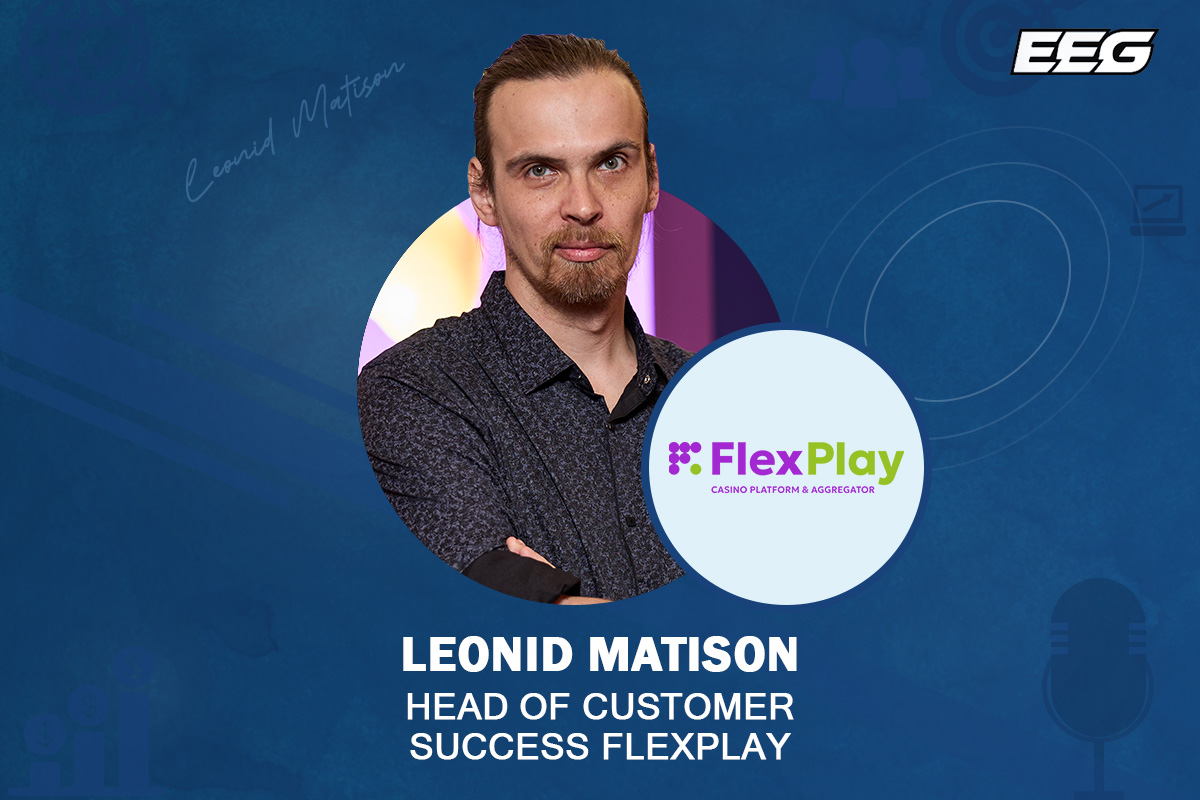
FlexPlay is entering a new phase with the launch of its own casino platform. Leonid Matison, Head of Customer Success, speaks with EEGaming about what inspired the company’s evolution, how it is helping partners adapt to change, and why a focus on flexibility, creativity, and collaboration is driving its vision for the future.
What inspired the move into the platform space, and how did that background shape your approach to creating it?
FlexPlay was born from EvenBet Gaming out of working closely with operators and studios as an aggregator, so we had a very clear view of where existing platforms were falling short. Many operators were forced to adapt their business models to rigid technology instead of the other way around.
Moving into the platform space was a natural evolution. We wanted to build a product that reflects how the market actually works today: fragmented regulation, fast-changing player behaviour, and the need to launch, test, and adapt quickly. That background shaped our approach significantly. Instead of building a “one-size-fits-all” platform, we focused on modularity, flexibility, and speed, so operators can grow without having to rebuild their infrastructure every time their strategy changes.
The platform market is full of established names. What makes FlexPlay stand out, and what kind of identity are you building for the brand?
Our differentiation isn’t about being louder or bigger — it’s about being more adaptable. FlexPlay is designed as a partner-centric platform, not a closed ecosystem.
We are building an identity around flexibility, transparency, and collaboration. Operators can customise their product, UX, content strategy, and growth roadmap instead of fitting into predefined templates. Commercially, we also remove unnecessary pressure at early stages, for example with models where partners don’t pay content fees until they actually start growing.
In a crowded market, identity comes from how you work with partners day-to-day, not just from features on a website.
You have described FlexPlay as a platform that “evolves alongside its partners.” What does that look like in practice for operators working with you?
We don’t treat launch as the finish line. We stay actively involved after go-live.
Operators receive ongoing support in analysing performance, adjusting content portfolios, testing new mechanics, and refining player engagement strategies. Our platform allows operators to add, remove, or prioritise content quickly, run experiments, and respond to real player data instead of assumptions.
We also actively listen to partner feedback and translate it into platform improvements. If a feature or workflow doesn’t serve operators in real conditions, we adjust it.
How does that flexibility help brands entering fast-changing or emerging markets where conditions can shift quickly?
Emerging markets rarely follow a stable or predictable path. This year, we are going to SiGMA Africa for the first time, and this continent is just the right example of how quickly and often market transforms. Regulation changes, payment preferences evolve, and player behaviour can shift very quickly.
FlexPlay’s flexibility allows operators to adapt without disruption: adjusting payment flows, reconfiguring bonuses, changing content focus, or localising UX. The platform isn’t locked into rigid structures, so operators can react to market signals in weeks rather than months.
This is especially important for brands entering highly volatile markets in Africa or LatAm, where the ability to pivot often determines success.
AI is a hot topic right now. How are you exploring its potential at FlexPlay, and what do you find most exciting about how it can genuinely support operators and players?
We approach AI very pragmatically. For us, it’s not about replacing people or creating black-box systems, but about enhancing decision-making.
We are exploring AI in areas like player segmentation, behavioural analysis, and content recommendations. It may help operators understand what players actually want and when. AI can also support smarter lobbies, more relevant promotions, and better detection of engagement patterns.
What excites us most is AI’s ability to reduce noise. It can highlight what truly matters and help them act faster and more confidently. But it can’t and will not fully replace strategic decision-making by humans.
Personalisation has become an essential part of modern player engagement. What does it mean to you in practice, and how is FlexPlay helping operators bring it to life?
For us, personalisation means relevance. Not just visuals or messages, but the entire player journey. FlexPlay enables operators to segment players based on behaviour, preferences, and performance, and then tailor content, bonuses, and communication accordingly. This helps players discover games that actually match their interests instead of scrolling through endless lobbies.
Good personalisation improves retention and trust. Players feel understood rather than pushed, and operators benefit from stronger long-term engagement.
But we suggest avoiding over-personalisation: if the players see only the recommended “long tail”, it may affect the operator’s revenue. Manual curation in addition to personalisation (like featuring a seasonal game during a holiday, or an operator’s personal favourite) allows for strategic promotions and branding.
Growth can be exciting but also challenging for operators. How do you and your team at FlexPlay support partners as they take that next step?
Growth often exposes weaknesses in technology or strategy. Our role is to help operators scale without losing control.
We support partners with analytics, reviews, and strategic guidance, helping them prioritise what to scale and what to optimise first. Technically, the platform is built to handle growth without forcing structural changes. Commercially, we remain flexible so that a transition is easier for operators.
Looking ahead, what are the key milestones or developments you are focused on for the year ahead?
Our focus is on deepening platform intelligence and partner value. This includes expanding AI-driven tools, improving content discoverability, and enhancing automation where it adds efficiency.
We are also investing in better insights for operators: not just reporting, but actionable recommendations that help them make smarter decisions faster.
Another priority is continuing to refine our platform based on real partner use cases, not theoretical ones.
And finally, when you think about FlexPlay’s future, what do you hope the company will represent within the wider iGaming industry?
I hope FlexPlay will be seen as a trusted growth partner — a company that helped operators build sustainable businesses rather than short-term results.
In an industry that often focuses on speed and scale, we want to represent balance: technology that adapts, content that makes sense, and partnerships built on mutual success.
If operators look back and say, “FlexPlay helped us grow the right way,” that will be the real measure of success.
The post FlexPlay: building a platform made to grow with its partners appeared first on Eastern European Gaming | Global iGaming & Tech Intelligence Hub.
boutique studios
Movers and Shakers: The blueprint for boutique studios looking to crack America
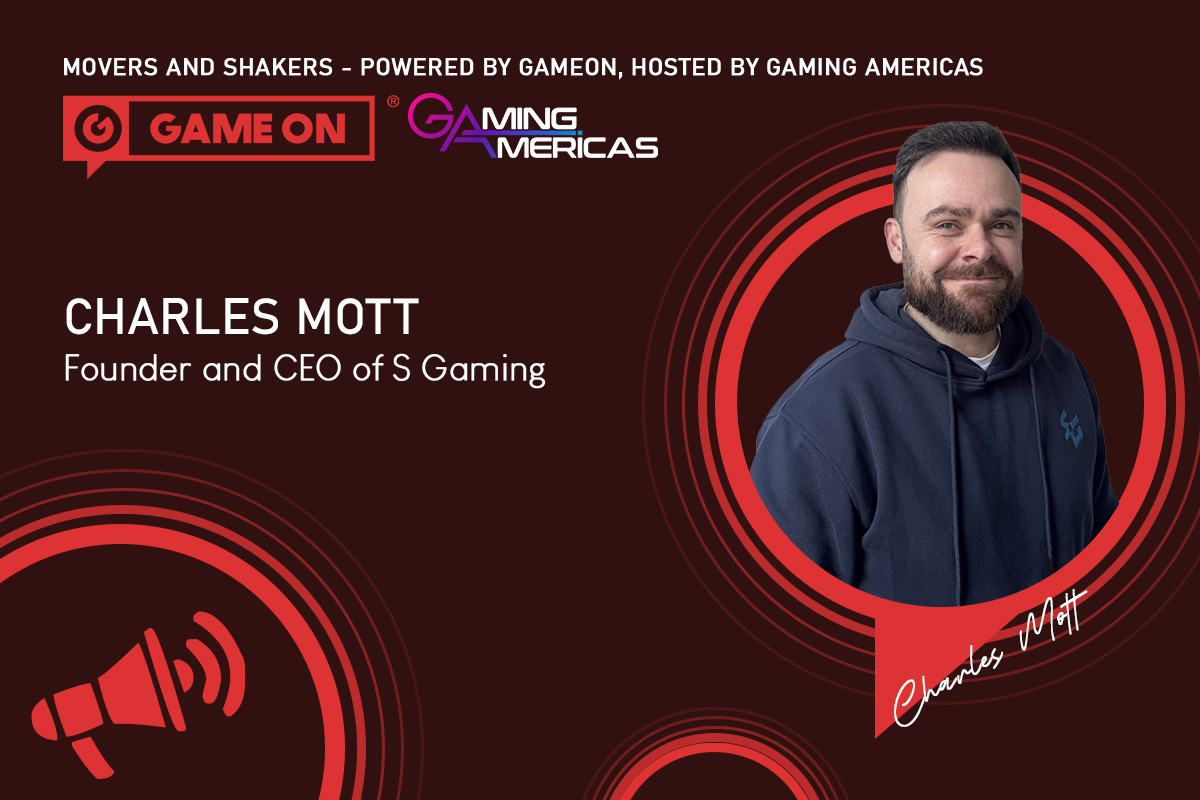
“Movers and Shakers” is a dynamic monthly column dedicated to exploring the latest trends, developments, and influential voices in the iGaming industry. Powered by GameOn and supported by HIPTHER, this op-ed series delves into the key players, emerging technologies, and regulatory changes shaping the future of online gaming. Each month, industry experts offer their insights and perspectives, providing readers with in-depth analysis and thought-provoking commentary on what’s driving the iGaming world forward. Whether you’re a seasoned professional or new to the scene, “Movers and Shakers” is your go-to source for staying ahead in the rapidly evolving iGaming landscape.
Charles Mott, Founder and CEO of S Gaming, says finding success in the US is a tough task, but that studios who can replicate the magic of the casino floor have what it takes to make it stateside
There are plenty of European studios that have set their sights on finding success in the US, but very few have actually managed to achieve it. This is because they are making a common mistake, and that’s failing to translate the preferences of US slot players into their games.
For more than a decade now, the UK and European markets have been defined by “the chase” – high volatility slots with massive, infrequent max wins and jackpots that deliver anticipation and thrills, but that also exhaust the player’s balance in minutes.
But if you walk on to the floor of any Las Vegas casino, the atmosphere is different. It’s about “time at machine”. It’s the neon, the regular dopamine hits of smaller wins and the ability to make $100 provide an entire evening’s worth of entertainment.
As the US market increasingly moves to online, with more states embracing regulated iGaming, it’s no longer finding its feet with players now actively looking for a digital version of the land-based soul they have loved for many years.
Moving away from the “big win” to the “long session”
US players have been culturally conditioned by the physical casino experience. Unlike the high-stakes digital environment of Europe, the American player often views slots as a leisure activity rather than a jackpot hunt.
This is why S Gaming has focused on fun, entertainment and sustainability, with our games matching the “steady tortoise” cadence of land-based slot machines. They still deliver lots of big win potential, but across longer and more engaging sessions.
For operators like BetMGM and Fanatics, both of which we’ve recently partnered with, it’s not just about fun, it’s about retention.
A player who loses their balance in three minutes is a churn risk, but a player who wins small, frequent prizes stays in the ecosystem for longer and ultimately generates a much higher lifetime value.
Efficiency over ego
But it’s not just about having the right games, distribution is also key to cracking America. This is a notoriously difficult market because it’s not one jurisdiction, it’s five (and counting) regulatory islands and in each, you need to secure regulatory approvals.
This is actually a moat that keeps many smaller studios out. It’s an issue we had to overcome, and ultimately looked for a partner that could help us bridge the gap. Our agreement with Gaming Realms allows us to use its remote game server and licences to launch into US states.
This “Infrastructure-as-a-Service” model allows a studio to focus on “game grammar” (math and art) while the partner handles the “plumbing” (compliance and connectivity). It’s the leanest way to hit the ground running with a tier-one operator across multiple states simultaneously.
Why tier ones are buying in
You might be wondering why a tier one giant like BetMGM has joined forces with a boutique UK studio and facilitated its launch into the US.
But the reality is that operators are fighting soaring acquisition costs right now and this means they no longer want more games, they want differentiated games that reduce churn and keep players coming back for more.
Our focus on sustainable entertainment aligns with current US regulatory requirements and the focus on responsible gaming. Games designed for longer, lower stakes sessions are inherently “safer” and more palatable to regulators and risk-averse operators alike.
And they just hit the mark more with players. Sure, winning is a big part of playing online slots, but how you get to the win and the perceived entertainment value is now just as if not more so important – not just in the US but in the UK and Europe, too.
The data-driven evolution
Success does not come from a single launch – it comes from having a feedback loop. We now have a handful of games live in the US market, including our flagship Triple 7 Jackpot title, from which we are gathering real-time data on player behaviour.
This is allowing us to move from “what we think players want” to “what the data tells us they love” and this in turn is allowing us to refine our product roadmap and the games we are producing for the US market, ensuring each title is more culturally resonant than the last.
The new era of transatlantic growth
Cracking America in 2026 isn’t about having the loudest brand of the biggest marketing budget – it’s about understanding the psychology of the casino floor.
The studio’s that succeed will be those that realise the US player isn’t looking for a new way to gamble, they’re looking for a digital version of the “Vegas” feeling they’ve known and loved for decades.
The post Movers and Shakers: The blueprint for boutique studios looking to crack America appeared first on Americas iGaming & Sports Betting News.
Bede Gaming
U.S. Market Roundtable
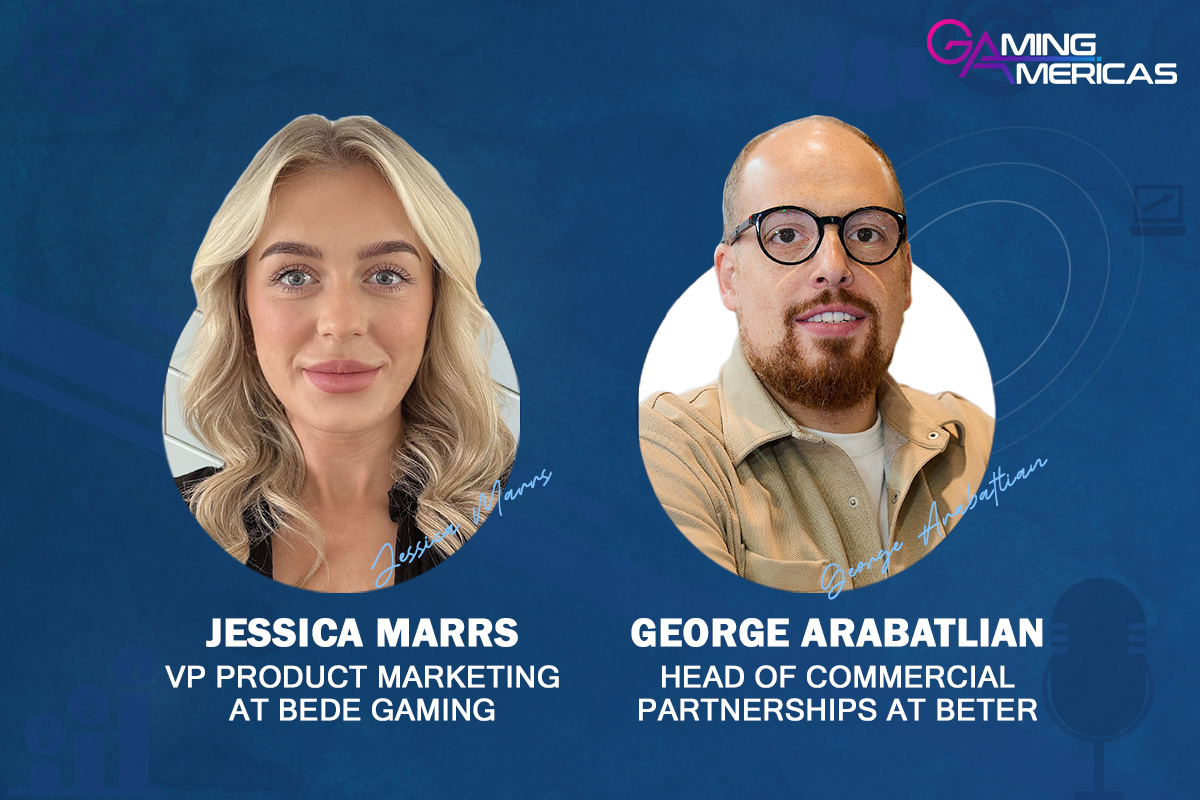
With America being a complex but opportunity-rich set of jurisdictions for iGaming businesses to target, we sat down with two industry experts to get their thoughts on navigating the notoriously tricky U.S. market. In the following roundtable discussion, senior figures from platform solutions provider, Bede Gaming, and innovative fast-betting brand, BETER, will give us their insights on entering the U.S., the importance of balancing speed-to-market with proper due diligence and the key differentiators that will allow aspiring challengers to stand out from the competition.
Participants:
Jessica Marrs, VP Product Marketing at Bede Gaming (JM)
Jessica is a proven product leader in iGaming. As former Lead of Bede Gaming’s Account portfolio, she led a team focused on delivering innovative payment solutions, improving player onboarding, streamlining player management and omnichannel capabilities across Bede’s international customer base. Now VP of Product Marketing, Jessica plays a key role in shaping the company’s strategic positioning and global partnerships. Her expertise lies in bridging product strategy and innovation across areas to drive growth and operational efficiency.
George Arabatlian, Head of Commercial Partnerships at BETER (GA)
George is a senior iGaming executive with over 12 years of industry experience and in-depth knowledge of sportsbook data feeds, casino aggregation, and betting content acquisition. Having previously overseen BETER’s dynamic team of account managers, his contribution to the company’s growth led to his appointment as Head of Commercial Partnerships in 2025. Now responsible for identifying new strategic opportunities, managing relationships, and delivering outstanding ongoing value to BETER partners, his passion for staying ahead of the latest trends has played a crucial role in the company’s recent success.
What factors make the U.S. an attractive market for companies like yours at this current time in its evolution as a regulated market?
JM: The U.S. is a huge collection of markets, all of which are growing rapidly and show no signs of slowing down. At Bede, we feel the demands of U.S. customers, operators and regulators will be familiar to us, as we see many similarities to the other markets we’re active in, in terms of its fast growth and unique compliance requirements. With the flexibility and agility Bede provides via our open-API, single-codebase model, we believe our technology and expertise will help us support U.S. operators succeed – especially those that are focused on casino, slots, lottery, sports and omni-channel experiences. With Bede, it’s easy to integrate whatever you need for your specific state, whether it’s a content aggregation or a full end-to-end platform solution. Our speed-to-market capabilities also empower businesses to respond to changing requirements quickly, which is key to staying ahead of the curve and maintaining strong relationships with regulators.
GA: The U.S. market is vast, with a growing number of states now operating under well-defined regulatory frameworks. As several states are also likely to regulate in future, there remain substantial opportunities for growth. Together, these factors create a stable environment where innovative, compliant businesses can thrive. Within these markets, we see a strong and rising demand for fast-betting content – which is something BETER specialises in delivering at scale.
Competitive sports are part of the American DNA. Even with such a wide variety, one constant in the market is the appetite for fast-paced content that keeps bettors engaged and entertained 24/7. We’ve seen this firsthand in states such as New Jersey, Colorado, Iowa, Indiana and Florida, where BETER’s exclusive esports and sports content was approved last year. What we’ve learned since is that regardless of the discipline, if it’s exciting and impactful, the U.S. audience wants it.
Another factor elevating the appeal of the U.S. is the rapidly-expanding ecosystem surrounding regulated gaming. Conferences and exhibitions are becoming larger and more sophisticated, helping to build a strong, connected professional community. This gives us a powerful platform to showcase our award-winning fast-betting content and strengthen relationships in the industry.
Any organisation seeking long-term success in regulated gaming and willing to play by the rules needs to establish a presence in the U.S. This is where innovation thrives and both operators and bettors seek new and engaging experiences – precisely the environment in which BETER excels!
How can businesses balance speed-to-market with the need for careful regulatory and cultural due diligence?
JM: The balance between speed-to-market and regulatory compliance must always begin with thorough market research and high-quality, stable platform architecture. Our platform is a single codebase with a modular design, ensuring high agility and unlimited access to the innovations, integrations and configurations that will be essential for cross-market success in the U.S, which involves a lot of state-specific nuance. As being able to adapt to different regulatory requirements and player preferences is so crucial, the fact that even our bespoke, territory-specific solutions are built with configurable options makes it easy for operators to keep on top of compliance while also maintaining their own brand differentiation. In terms of reliability, the cutting-edge technology and third-party automation tools we use ensure continuous stability. By leveraging machine learning and micro-server right-sizing to respond to traffic demands, we’re able to consistently deliver 99.99% availability, ensuring the customer environments can seamlessly handle varying workloads, maintain performance and scale dynamically with live traffic levels.
GA: Speed certainly matters, but in regulated markets, trust is mission-critical.
Winning in the U.S. – or any regulated jurisdiction – isn’t about being first; it’s about being right. The companies that succeed are those that move quickly while still showing full alignment with regulatory requirements, cultural nuance, and industry integrity. This balance is only achievable when businesses leverage strong data, local partnerships, localisation strategies, and adaptive technologies – all foundations that enable fast deployment, while also maintaining compliance.
At BETER, our strategy is to move fast, but with purpose. This means building every expansion on clear regulatory processes, deep local insights, robust integrity measures, and transparent communication with regulators. Our award-winning Integrity Team plays a central role in our U.S. strategy, ensuring that all BETER content that’s approved for regulated markets operates under continuous 24/7 integrity monitoring, total transparency, and the highest standards of fair play.
By following this model, we’re able to understand each state’s requirements quickly, secure the necessary approvals, and go live with partners at speed – all while establishing a foundation of reliability that supports long-term growth.
How complex is it to navigate the state-by-state gaming regulation in the U.S.?
GA: It’s complex, but rightly so. Each state operates under its own regulatory framework, definitions, and evidentiary standards. States want to ensure companies in their markets are reputable, transparent, and capable of meeting the highest operational and integrity standards.
At BETER, we now have several U.S. states under our belt, and this has given us a deep understanding of how to make the approvals process as smooth and seamless as possible. What we’ve learned is that the work begins long before the application is submitted. It starts with proactive communication with regulators to fully understand the procedure required in that state.
One of the most important things is to identify a strong local legal partner who understands state-specific nuances and can help navigate these often-complex requirements. This avoids missteps, reduces delays, and ensures the application moves through the system efficiently. At the same time, maintaining constant dialogue with regulators, providing timely clarifications, and demonstrating transparency in operations all go a long way. This is where our legal team does such a great job. Their work underpins BETER’s credibility, helping us build trust with regulators and partners, and allows us to secure approvals in a timely and compliant manner in every state.
The U.S. iCasino and entertainment market is becoming more crowded; how can businesses really stand out and what considerations must they make for attracting U.S. players?
JM: Casino and entertainment have always been strongly bonded in the U.S., but the recent evolution is the regulation. With such a vast range of content to choose from, offering an enjoyable experience is relatively easy, but for long-term success, we believe it will be critical for operators to develop player safety programmes and features that encourage retention. Operators will need to tailor their strategies in these areas to the demands of each specific market, as understanding the different player preferences will be key to them reaching and appealing to their target audience. For land-based operators looking to break into the digital space, we see a significant difference in expectations around registration between retail and online, so this must be considered when providing any omni-channel/convergence solution. Player behaviour also differs greatly between verticals, so having an innovative segmentation tool like Bede’s can help operators group users accurately and provide better-tailored journeys and offers that feel unique.
The post U.S. Market Roundtable appeared first on Americas iGaming & Sports Betting News.
-

 Latest News6 days ago
Latest News6 days agoGGBET UA hosts Media Game – an open FC Dynamo Kyiv training session with journalists from sports publications
-

 Asia6 days ago
Asia6 days agoBooks on Wheels: DigiPlus Foundation Brings Mobile Library to Boost Literacy Among Aurora’s Young Learners
-

 BETANO6 days ago
BETANO6 days agoCT Interactive Partners with Betano.cz for Live Rollout
-

 apostadores7 days ago
apostadores7 days agoBrasil entra en la fase de endurecimiento post-legalización
-

 Canada6 days ago
Canada6 days agoSt8 launches in Ontario through partnership with Tonybet
-

 Latest News6 days ago
Latest News6 days agoSlots dominate Brazil’s casino catalog, but crash games capture outsized player demand,Blask data reveals
-

 Baltic & Nordics Gaming Awards 20266 days ago
Baltic & Nordics Gaming Awards 20266 days agoNominations Now Open for the HIPTHER Baltic & Nordics Gaming Awards 2026
-

 Ca$hline6 days ago
Ca$hline6 days agoCaesars Entertainment Launches First Proprietary Online Slot, Ca$hline














